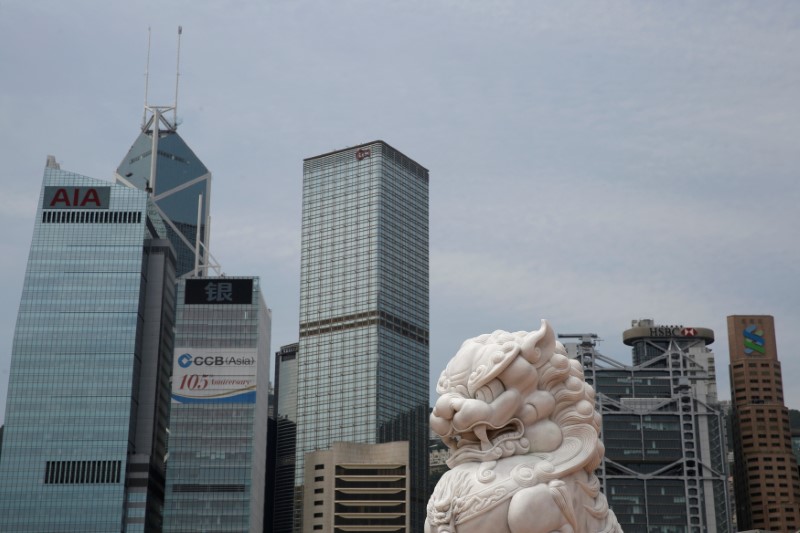HONG KONG (Reuters) - Hong Kong's banking regulator said on Friday it would delay by a year the implementation of global rules designed to rein in banks' trading risks, in the first signs a United States-led pushback on post-crisis rules is having ripple effects in Asia.
The rules, known as the 'fundamental review of the trading book' (FRTB), were drawn up last year by the Basel Committee on Banking Supervision. They form part of a decade-long international effort to prevent a repeat of the 2008-2009 global financial crisis.
Last week, the U.S. Treasury published a proposal in which it called for a delay to the FRTB, as part of President Donald Trump's broader campaign to roll back many post-crisis reforms.
Reuters reported that the Treasury proposal would likely make regulators in Asia rethink their position on the implementation time frame, amid fears their banks may be put at a disadvantage if they pushed ahead while other countries held back.
On Friday, the Hong Kong Monetary Authority (HKMA) said in a circular to banks in the financial hub that it did not expect to implement FRTB until January 2020.
The regulator said "a number of practical implementation questions have arisen given the high complexity of the new standards" including as to the "fundamental relevance" of the proposed rules.
The BCBS, which does not have the power to force member countries to implement the rules, had agreed national governments would implement them in January 2019.

The rules aim to create a capital buffer to insulate banks from losses arising from their trading books but have been criticized by market participants as too complicated to implement in the agreed time frame.